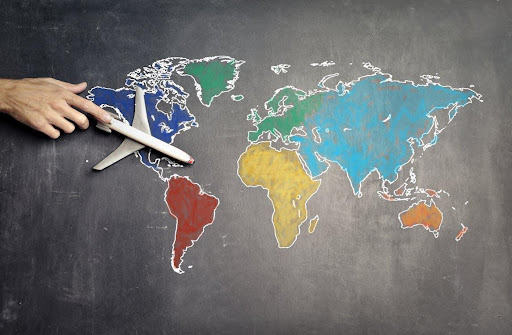Moving overseas stands as one of life’s most thrilling adventures, offering individuals and families the chance to explore new cultures, languages, and landscapes. However, this significant transition is fraught with complexities and challenges that, if not navigated wisely, can turn an exciting opportunity into a stressful ordeal. From navigating international logistics to adapting to a foreign culture, the process demands thorough preparation and keen attention to detail. The key to a successful move lies not only in the anticipation of new beginnings but also in the meticulous avoidance of common pitfalls that have tripped up many before. Read on as we go through the essential aspects to consider and the common mistakes to sidestep when embarking on your international journey.
Not Researching Your Destination Thoroughly:
A lack of comprehensive research about your new country can lead to unpleasant surprises upon arrival. It’s crucial to delve into the specifics of the local culture, legal system, living costs, and social norms. This encompasses everything from understanding public transportation options and local healthcare services to identifying expat communities that can offer support. Familiarizing yourself with your new environment beforehand can significantly ease the transition, allowing for a smoother integration into daily life abroad.
Choosing the Wrong Moving Service:
The logistics of moving belongings across borders can be one of the most daunting aspects of relocating internationally. Selecting the right moving company is paramount to ensuring your possessions arrive safely and on time. An international moving company like Solomon & Sons Relocation specializes in navigating the complexities of international transport, offering peace of mind that your items are in experienced hands. Making the wrong choice in this regard can lead to lost or damaged belongings, unnecessary delays, and added stress, highlighting the importance of thorough vetting and selection.
Underestimating the Cost of Living:
Many expatriates find themselves caught off guard by the cost of living in their new country. Expenses such as housing, groceries, transportation, and leisure activities can vary dramatically from one location to another. Underestimating these costs can strain your budget and limit your lifestyle abroad. It’s essential to conduct detailed research on living expenses in your new city, plan your budget accordingly, and ensure you have a financial cushion for unexpected costs.
Neglecting Visa and Immigration Requirements:
Navigating the maze of visa and immigration laws is a critical step in the relocation process. Each country has its own set of requirements, timelines, and paperwork for allowing foreigners to live and work within its borders. Failing to secure the necessary visas and permits can result in denied entry, deportation, or legal complications. Early research and preparation are key to understanding these requirements, and consulting with immigration experts can provide clarity and streamline the application process.
Overlooking Health Care Coverage:
The excitement of moving abroad can easily overshadow the practicality of securing international health insurance. Yet, access to healthcare in a foreign country is not a given, and without proper coverage, expatriates may find themselves facing exorbitant medical bills in case of illness or injury. Investigating health care systems, available insurance plans, and any reciprocal health care agreements between your home country and your destination is crucial. Ensuring you and your family are covered from the moment you land not only protects your health but also guards against unforeseen financial burdens.
Packing Inappropriately for the Climate or Culture:
One common mistake is failing to research the local climate and cultural norms of your new country, leading to a wardrobe that’s either inadequate or disrespectful. Before packing, investigate the typical weather patterns and cultural dress codes to ensure your clothing is both appropriate and comfortable. In some countries, what’s considered casual wear at home might be seen as offensive or simply impractical given the local weather conditions.
Failing to Secure Important Documents:
In the whirlwind of moving preparations, it’s crucial not to overlook the importance of organizing and securing essential documents. Passports, birth certificates, marriage certificates, medical records, and educational certificates should all be kept in a safe and accessible place. Making digital copies and storing them securely online can also provide a backup in case of loss or damage. These documents are your lifeline abroad, necessary for everything from enrolling children in school to setting up bank accounts.
Not Preparing for the Language Barrier:
Underestimating the language barrier can significantly impact your adaptation to a new country. While English is widely spoken in many parts of the world, assuming it will be sufficient can limit your social interactions and understanding of local culture. Taking basic language courses before the move or using language learning apps can facilitate daily communications and help you integrate more quickly into your new community.
Misjudging the Emotional Impact:
The emotional toll of leaving behind familiar surroundings, friends, and family is often underestimated. Culture shock, loneliness, and homesickness can be challenging hurdles for new expatriates. Preparing for these emotional aspects by establishing a support network, finding expat communities, and keeping an open mind towards new experiences can mitigate these feelings. Remember, adjusting to a new culture takes time, and it’s important to be patient with yourself during this process.
Ignoring Tax Obligations:
Many expatriates find themselves unaware of their tax obligations in both their home country and their new country of residence. Failing to understand and comply with these obligations can lead to legal complications and financial penalties. It’s advisable to consult with a tax professional who specializes in expatriate tax issues to ensure you’re fulfilling your tax responsibilities and taking advantage of any available treaties or exemptions.
Not Planning a Pre-Move Visit:
If possible, visiting your prospective new country before the move can offer invaluable insights into what life will be like. A pre-move visit allows you to explore housing options, schools, and neighborhoods, making the transition less daunting. It also provides an opportunity to start building connections and familiarizing yourself with the local area, culture, and language, laying a solid foundation for your upcoming move.
Conclusion:
Moving overseas is an intricate process laden with potential pitfalls, but with thorough preparation and awareness, these challenges can be navigated successfully. From logistical considerations like packing and securing important documents to emotional and cultural adjustments, each aspect of the move requires careful thought and planning. By addressing these issues head-on and staying flexible and patient, you can ensure a smoother transition to your new international home, setting the stage for an enriching and fulfilling experience abroad.












Find Us on Socials